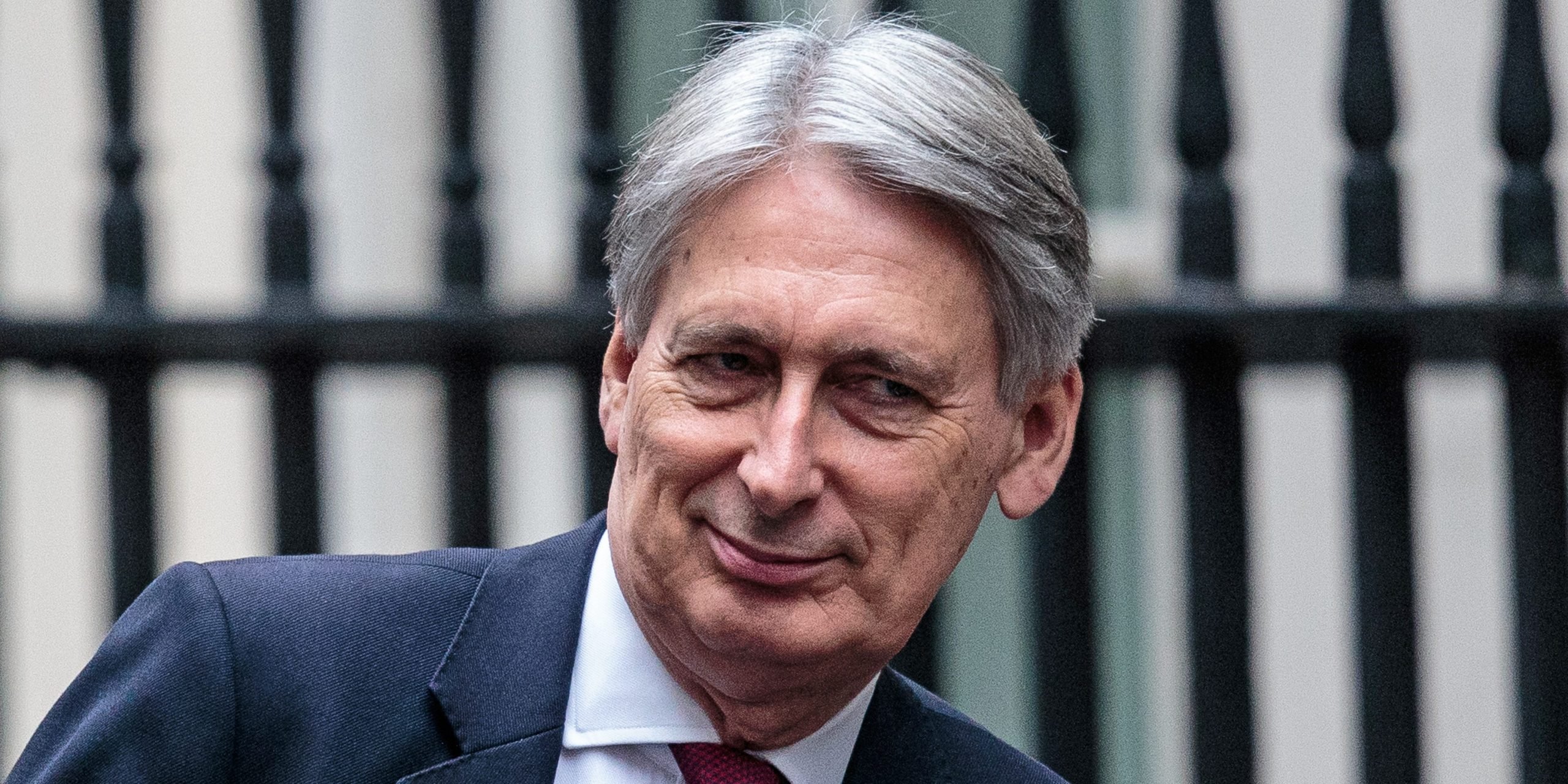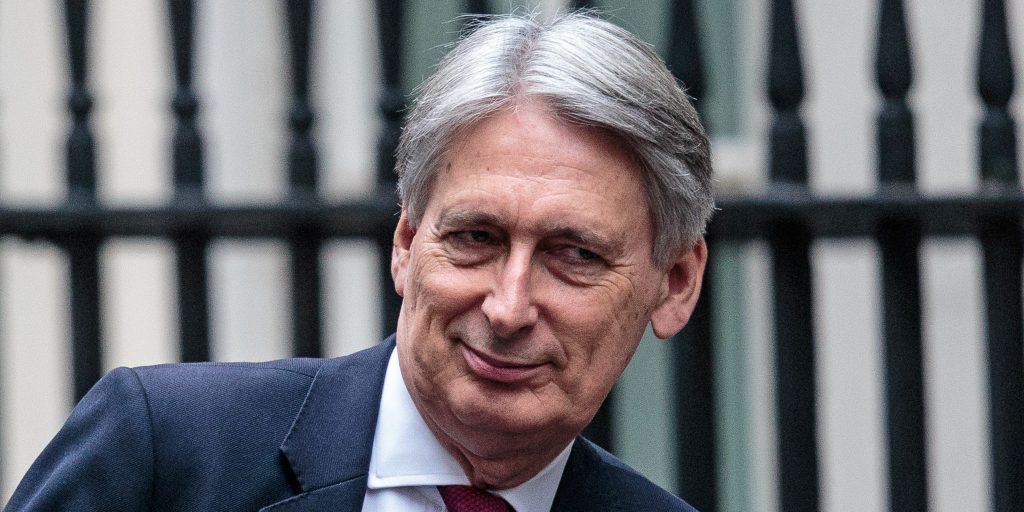
Jack Taylor/Getty Images
- Philip Hammond contacted the Treasury on behalf of a bank, pushing the limits of lobbying rules.
- A regulator judged that his lobbying was 'incidental' and not breaching the rules.
- Campaigners and lobbyists both say the finding shows the need for reform in lobbying rules.
- See more stories on Insider's business page.
Lord Philip Hammond, the former Chancellor of the Exchequer, was cleared of breaking lobbying rules when he contacted a senior Treasury official on behalf of a bank he was working for.
Former ministers are generally barred from trying to influence the government on behalf of clients.
But Hammond's activity was deemed acceptable by an independent regulator on the grounds that it was "incidental."
Critics of the lobbying system said that the ruling shows that too little is being done to prevent wrongdoing by former ministers and civil servants.
Hammond was cleared by the Registrar of Consultant Lobbyists (ORCL), an independent arms-length body which monitors lobbying by former ministers and senior civil servants, per a document published on Friday.
It judged that, since lobbying was not his main activity, there was no need for him to register as a lobbyist working on behalf of a third party.
In July 2020, Hammond contacted a top civil servant at the Treasury in which he followed up on an approach made by OakNorth. The bank was paying him at the time for advice, but not, Hammond maintained, for interacting with the government on its behalf.
This was first reported by The Sunday Telegraph.
Legislation covering lobbying carried out by third parties includes exemptions for people whose main business is not lobbying, as long as the communication is "incidental" to their normal work.
Critics said that the ruling highlights flaws at the heart of the Transparency of Lobbying, Non-Party Campaigning and Trade Union Administration Act, passed in 2014.
Francis Ingham is the director general of the Public Relations and Communications Association, the trade association for the public relations sector in the UK.
"That Philip Hammond did not break the rules is in itself a damning indictment of the pretty much pointless Lobbying Act passed by the Government in which he was a senior cabinet minister," he told Insider.
"The current lobbying rules are utterly unfit for purpose. They exclude four out of five lobbyists, and have been criticised repeatedly by our industry, which has far higher standards and levels of disclosure than this minimal Act requires.
"ORCL giving the former Chancellor a slap on the wrist will affect the future of behaviour of absolutely no former politician turned would-be lobbyist. That shows why the law needs to be changed."
His criticism of the bill was echoed by Susan Hawley, executive director at Spotlight on Corruption, which campaigns for the reform and enforcement of anti-corruption legislation. She says the exception for "incidental" acts is a "major loophole".
"This is yet another example of how the current rules for lobbying are deeply unsatisfactory and desperately in need of reform. The Registrar's approach contrasts strongly with the approach taken by ACOBA [another oversight body] which was highly critical of Hammond's lobbying - no doubt because the registrar is hamstrung by flawed rules," she told Insider.
"The idea that incidental lobbying should be carved out as an exception is a major loophole clearly open to abuse.
"It is time for the government to get serious about lobbying reform and to consult widely with industry groups, civil society groups and experts among whom there is widespread consensus about what reform should look like."
A spokesperson for Hammond declined to comment on ORCL's finding.
On September 1, Hammond was censured by a separate Whitehall body, the Advisory Committee on Business Appointments (ACOBA), which monitors compliance with rules rules forbidding ex-ministers from lobbying departments for two years after their departure.
Hammond has insisted he did not breach the government's rules, which no longer apply to him, but did in July 2020 when he contacted the Treasury.
A source close to Hammond told Insider that Hammond had no plans to register as a consultant lobbyist or to formally engage in lobbying.

